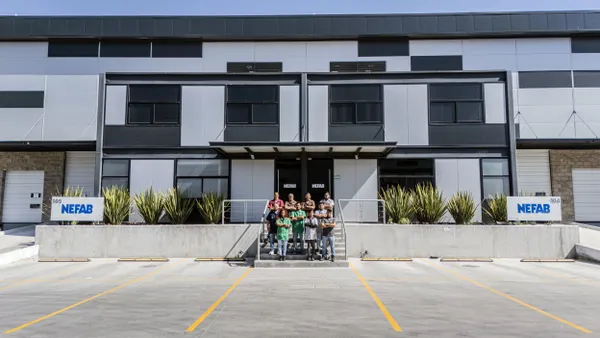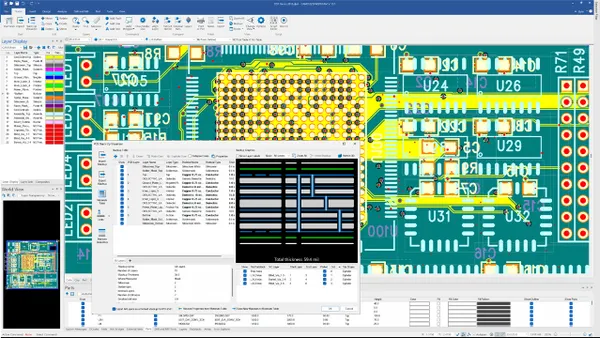Recruitment and retention of skilled manufacturing workers continues to challenge organizations in shift-based industries. According to a study by Deloitte, the US manufacturing industry will encounter a deficit of 2.1 million vacant positions by 2030. As a result, manufacturing plants are eagerly exploring innovative strategies to attract and retain qualified employees.
Addressing this challenge begins with understanding and prioritizing employees' diverse desires for a better work experience. For instance, recognizing the growing demand for flexibility in working hours among shift workers. By staying attuned to shift workers' concerns and implementing targeted strategies, manufacturing organizations can enhance their attractiveness as employers.
Another key strategy for staying attuned to workers' needs and experiences is integrating diversity, equity, and inclusion (DEI) initiatives. These programs can foster a more inclusive workplace culture and allow manufacturers to attract a broader talent pool, ensuring sufficient staffing levels and bridging the opportunity gap. However, it's important to note that implementing these strategies requires careful planning, resources, and ongoing commitment from leadership.
By recognizing and addressing the varied preferences and concerns of their workforce and by committing to thoughtful implementation, manufacturing organizations can take significant steps toward becoming employers of choice.
Balancing employee preferences with operational needs is essential for sustainability. Recent advancements in employee scheduling solutions have revolutionized workforce management. These solutions enhance workplace equity, provide greater schedule autonomy, and boost operational efficiency. By leveraging advanced technology to automate staffing assignments, they ensure compliance with scheduling rules and maintain adequate staffing levels for smooth operations. This balanced approach effectively achieves both employee satisfaction and operational efficiency.
Common employee scheduling challenges
Achieving workplace equity in shift allocation poses significant challenges. Human bias, often unconscious, frequently taints the process, resulting in an unfair distribution of preferred shifts and fostering a sense of inequity among employees.
Balancing business needs with employees’ personal lives presents another formidable challenge. Recent data from the Pew Research Center highlights that quality time with family ranks as a top priority for most Americans. Inflexible schedules can hinder employees' ability to manage personal responsibilities and spend time with loved ones, exacerbating the issue. Furthermore, the lack of transparency in scheduling processes breeds mistrust and feelings of unfairness among staff.
Compliance with diverse labor laws and regulations, which vary by region and industry, adds another layer of complexity to scheduling. Non-compliance exposes the employer to potential legal repercussions and reinforces perceptions of unfair treatment.
The solution: Specialized employee scheduling software
Advanced scheduling software is a vital equity enabler for manufacturing companies. It fosters fairness and inclusivity by providing equitable access to scheduling opportunities, strategically meeting the diverse needs of your workforce, while achieving your business objectives.
Here are the key benefits of advanced scheduling software for manufacturing companies:
- Fair scheduling practices: Automating scheduling processes minimizes errors and biases, ensuring equal opportunities for all employees regarding shifts and overtime. This fairness is pivotal for fostering harmony and equity.
- Access to actionable insights: Advanced scheduling tools offer managers comprehensive data analytics, aiding informed decisions on staffing needs and overtime distribution and detecting patterns that may indicate bias. Leveraging data helps ensure fair scheduling practices for all employees.
- Increased compliance: Automated scheduling software can comply with labor laws and organizational policies, ensuring fair pay practices and adherence to working hour regulations. This compliance safeguards employees against exploitation and legal risks.
- Transparent operations: Transparency is vital for fostering employee trust and organizational integrity. Scheduling software provides a transparent system where employees can access their schedules, shift changes, and pay calculations. This transparency fosters trust and reduces misunderstandings or conflicts related to scheduling and compensation in manufacturing settings.
Employing equitable scheduling solutions
Advanced scheduling software promotes fairness, compliance, and transparency in the manufacturing industry. Embracing these solutions benefits individual employees and also contributes to the long-term success and sustainability of manufacturing operations.
Shiftboard provides highly specialized employee scheduling solutions designed to meet the expectations of modern workers without sacrificing shift coverage, compliance, and other business needs. Shiftboard’s recent recognition as an Innovator to Watch exemplifies the impact its solutions have on advancing equitable, worker-friendly scheduling practices in shift-based industries.
About the Author:
Travis Shipley is the Chief Commercial Officer at Shiftboard, where he spearheads the company’s commercial strategy, ensuring organizational alignment across the entire customer journey. From business development and sales to implementation and ongoing customer support, his leadership ensures Shiftboard’s offerings meet the evolving needs of both new and current customers, driving worldwide revenue and cultivating enduring customer relationships. Connect with Travis on LinkedIn.










